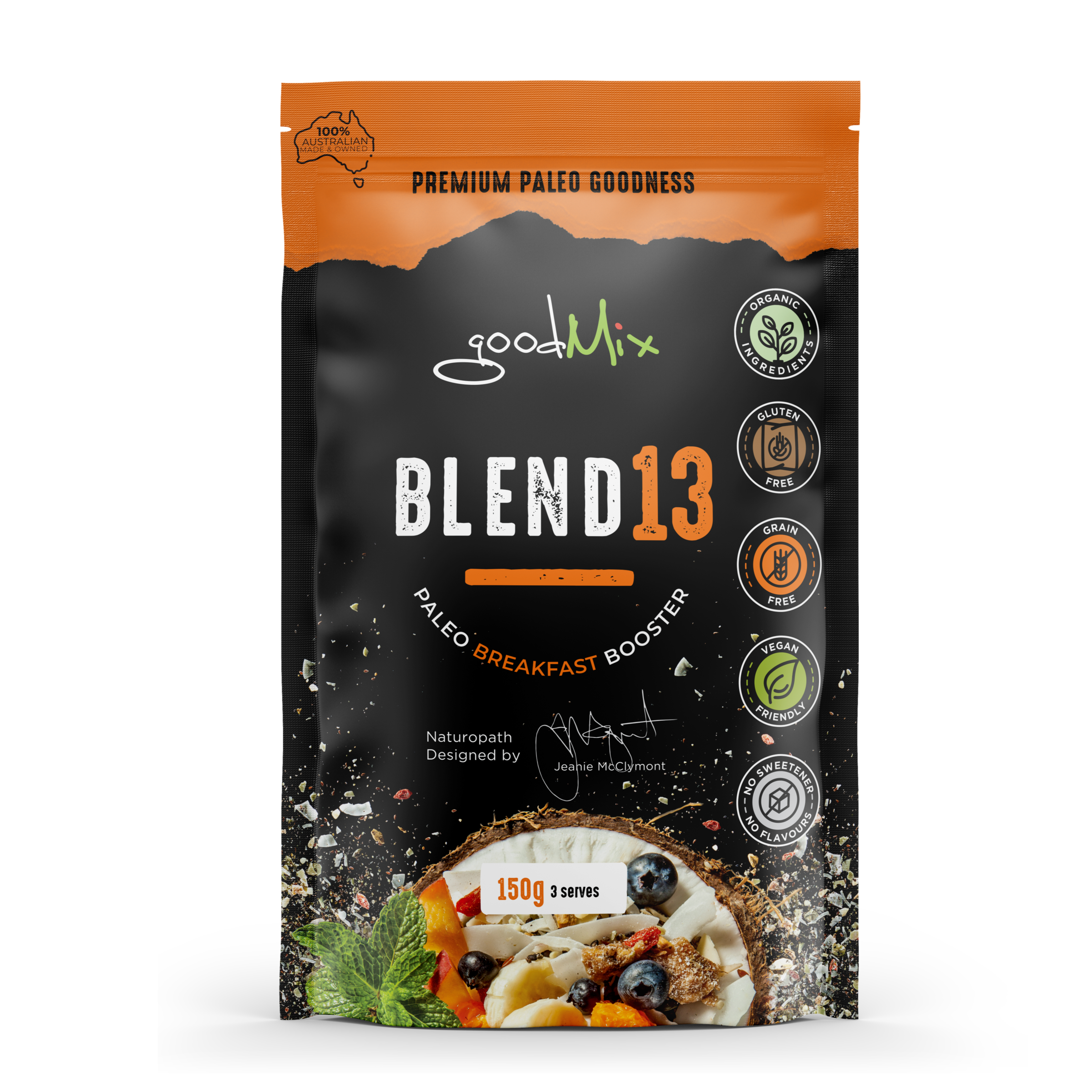
How a Healthy and Diverse Gut Microbiome Slows the Ageing Process
Ageing is a natural process that we all experience but there are ways we can slow the ageing process… and it all starts in the gut. The gut microbiome, a complex community of trillions of microorganisms residing in our digestive tract, plays a crucial role in our overall health. Emerging research has also highlighted the significant impact a healthy and diverse gut microbiome can have on slowing the ageing process. This blog post explores how a balanced gut microbiome can play a role in delaying the onset of age-related ailments and diseases including inflammation, cancer, cardiovascular issues, immunity and gut hyperpermeability.
Inflammation and the Gut Microbiome
Chronic inflammation is a key driver of the ageing process and age-related diseases. The gut microbiome helps regulate inflammation by producing anti-inflammatory compounds and maintaining the integrity of the gut barrier. Dysbiosis, an imbalance in gut microbiota, can lead to increased gut permeability, allowing harmful substances to enter the bloodstream and trigger systemic inflammation. A diverse gut microbiome, rich in beneficial bacteria, can counteract this by enhancing the production of anti-inflammatory cytokines and short-chain fatty acids (SCFAs), which have been shown to reduce inflammation and promote gut health.
Cancer Prevention
Certain gut bacteria have been found to produce metabolites that protect against cancer. For example, SCFAs like butyrate have anti-carcinogenic properties. They inhibit the growth of cancer cells and promote apoptosis (programmed cell death) of damaged cells. Additionally, a healthy gut microbiome supports the immune system in recognizing and attacking cancer cells more effectively. Research suggests that maintaining a diverse gut microbiome can lower the risk of colorectal cancer and other gastrointestinal cancers.
Metabolic Syndrome
Metabolic syndrome, a cluster of conditions including obesity, insulin resistance, high blood pressure, and dyslipidemia, is strongly associated with ageing. The gut microbiome influences metabolic health by regulating energy balance, glucose metabolism, and fat storage. Studies have shown that individuals with a diverse gut microbiome have a lower risk of developing metabolic syndrome. Probiotics and prebiotics, which promote the growth of beneficial gut bacteria, can improve insulin sensitivity and reduce inflammation, thereby mitigating the effects of metabolic syndrome.
Cardiovascular Health
Cardiovascular diseases (CVD) are a leading cause of morbidity and mortality in older adults. The gut microbiome impacts cardiovascular health through its role in lipid metabolism, blood pressure regulation, and inflammation. Beneficial gut bacteria produce SCFAs that help reduce blood pressure and cholesterol levels. Conversely, an unhealthy gut microbiome can produce harmful metabolites like trimethylamine N-oxide (TMAO), which is linked to increased risk of CVD. Ensuring a healthy gut microbiome can thus play a significant role in maintaining cardiovascular health and slowing the ageing process.
Immune Function
The gut microbiome is intimately connected with the immune system. A diverse and balanced gut microbiome educates the immune system to distinguish between harmful pathogens and harmless antigens, preventing inappropriate immune responses that can lead to autoimmune diseases and chronic inflammation. As we age, the immune system's efficiency declines, a phenomenon known as immunosenescence. By supporting a healthy gut microbiome, we can enhance immune function and reduce the risk of infections and autoimmune conditions associated with ageing.
Short-Chain Fatty Acids (SCFAs)
SCFAs, particularly butyrate, acetate, and propionate, are produced by the fermentation of dietary fibres by gut bacteria. These SCFAs serve as an energy source for colon cells, strengthen the gut barrier, and possess anti-inflammatory and anti-carcinogenic properties. They also influence the immune system and regulate gene expression related to metabolism and inflammation. Ensuring an adequate intake of dietary fibre to promote SCFA production is crucial for maintaining a healthy gut microbiome and mitigating the effects of ageing.
Gut Hyperpermeability
Gut hyperpermeability, often referred to as "leaky gut," occurs when the intestinal barrier becomes compromised, allowing toxins, pathogens, and undigested food particles to enter the bloodstream. This can trigger systemic inflammation and contribute to various age-related diseases, including autoimmune disorders and metabolic syndrome. A healthy gut microbiome supports the integrity of the gut barrier by producing mucins and reinforcing tight junctions between intestinal cells. Preventing gut hyperpermeability is essential for reducing inflammation and slowing the ageing process.
Conclusion
A healthy and diverse gut microbiome is fundamental to slowing the ageing process and preventing age-related diseases. By promoting a balanced diet rich in fibre, probiotics, and prebiotics, we can nurture our gut microbiota and reap the benefits of reduced inflammation, improved metabolic and cardiovascular health, enhanced immunity, and a stronger gut barrier. Continued research into the gut microbiome's role in ageing will undoubtedly uncover new strategies for promoting longevity and well-being.
Blend11 is a naturopath-designed breakfast seed mix that provides a rich source of prebiotics, diverse dietary fibre and supports production of the short chain fatty acid butyrate (all known for their immune-boosting properties). Adding a scoop of Blend11 to your breakfast can kickstart your day by supporting gut health, which is very closely linked to immune function. Look after your gut microbes, and they will look after you! By understanding and nurturing our gut microbiome, we can pave the way for a healthier, longer life.




